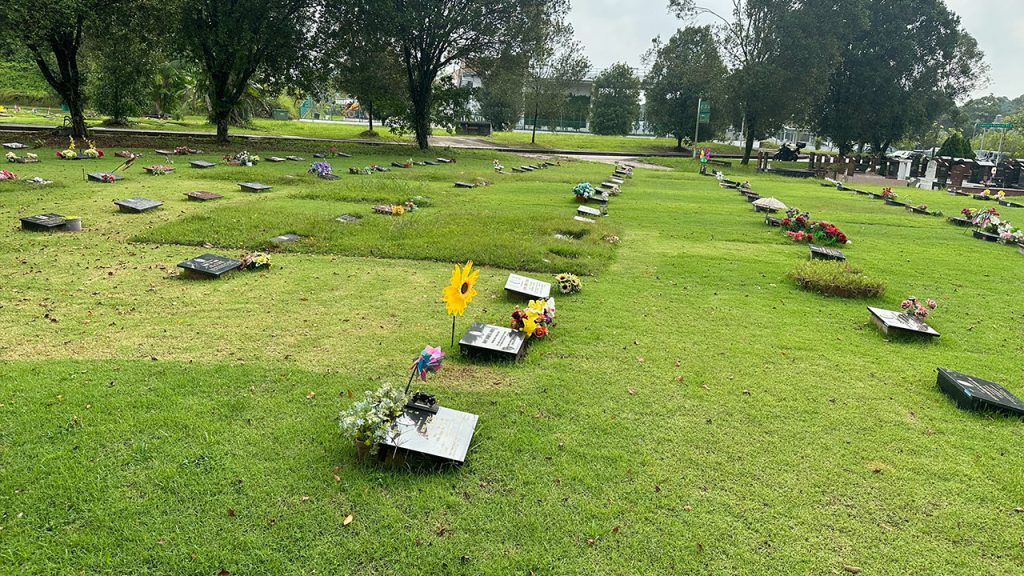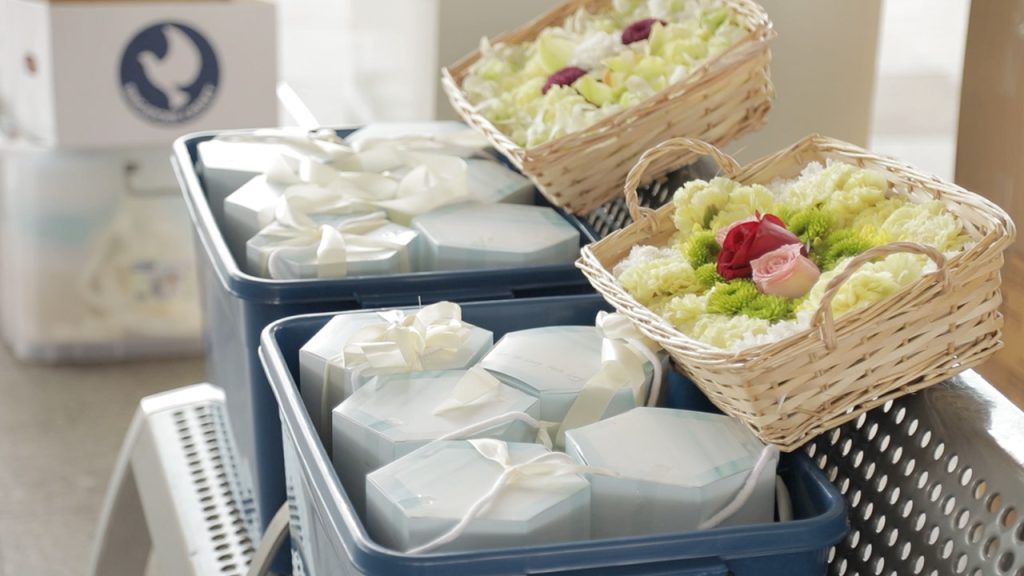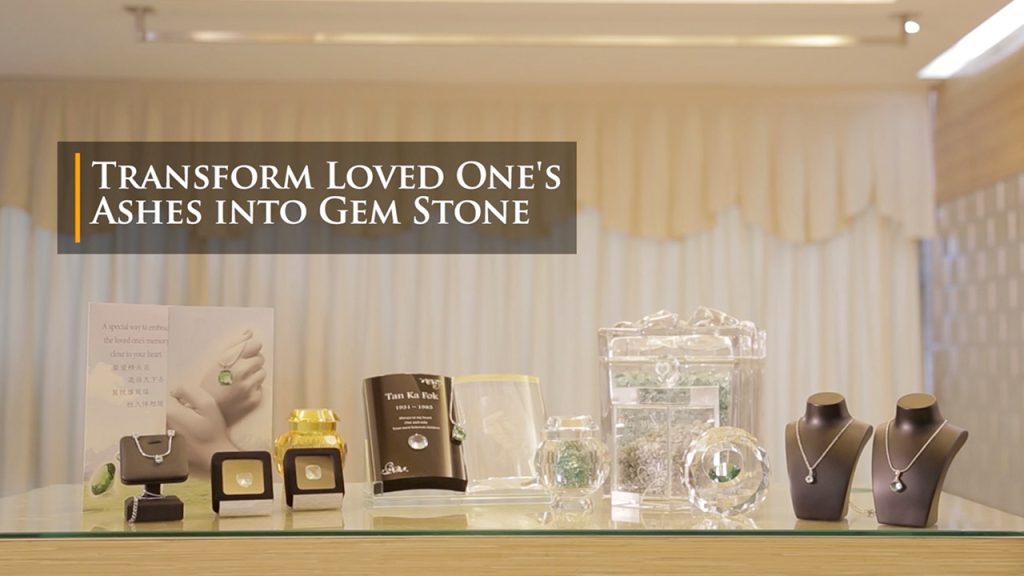
The passing of a loved one is an emotionally difficult time, and one of the most challenging decisions faced by families is choosing the right burial or final resting option.
In Singapore, where land is scarce and traditions are rich, the government, funeral industry, and community have created various options that cater to diverse needs, beliefs, and preferences.
Here’s a guide to the burial options available in Singapore to help you make an informed and respectful choice for your loved one’s final journey.
Burial Options
1. Traditional Burial
For those who prefer a traditional burial, Singapore offers a limited number of burial plots. Traditionally, the act of burial is seen as a deeply meaningful ritual, one that provides a sense of closure and honor for the deceased.
Choa Chu Kang Cemetery: This is the only public cemetery in Singapore where burials are permitted. It caters to various religious groups, with dedicated sections for different faiths such as Christian, Muslim, Hindu, and Taoist burials.
15-Year Lease: Due to Singapore’s limited land availability, burial plots in Choa Chu Kang Cemetery are offered on a 15-year lease.
After this period, the graves are exhumed, and families are given options for re-interment in smaller plots or cremation and placement in a columbarium.
Cost: Burial plots are generally more costly than cremation due to land scarcity and leasing terms, with the burial package price typically including funeral services, a coffin, a grave marker, and a hearse.
Although traditional burials offer a deep sense of legacy and continuity, they may not be suitable for all families, especially those concerned about cost and land limitations.
2. Cremation
Cremation has become one of the most popular final disposition methods in Singapore due to its affordability, environmental considerations, and accessibility.
Mandai Crematorium and Columbarium Complex: Managed by the National Environment Agency (NEA), this government facility is the primary site for cremations in Singapore. The complex offers a well-organized and serene environment with multiple cremation halls, spacious viewing galleries, and a variety of religious and secular services.
Kong Meng San Phor Kark See Monastery: Tse Tho Aun temple provides cremation services and is another prominent location for families opting for a religiously-focused cremation ceremony.
Columbarium Options: After cremation, ashes can be stored in one of Singapore’s columbaria. Mandai Columbarium offers niches of varying sizes, and several religious institutions, such as churches and temples, also provide columbarium services to accommodate families with specific religious beliefs.
Cremation offers flexibility as families can decide where to place the ashes, whether in a columbarium, in a memorial at home, or even at sea, as discussed below.
3. Sea Burial
A sea burial is a unique and environmentally friendly alternative that is growing in popularity in Singapore. It is also aligned with certain cultural and religious beliefs, making it a viable option for families looking for a dignified and meaningful way to bid farewell to their loved ones.
Ash Scattering at Sea: This involves scattering the ashes of the deceased in the sea, typically conducted with the support of a licensed sea burial service provider.
The NEA designates a specific site for sea burials, about 2.8 kilometers south of Pulau Semakau, where families can scatter ashes respectfully and in accordance with environmental regulations.
Eco-Friendly Process: Since sea burials do not require land, they are considered environmentally friendly and offer a sustainable alternative to traditional burial methods.
Cost and Process: Sea burials are generally more affordable than land burials and may include a simple boat charter, flowers, and rituals, depending on family preferences and religious customs.
Sea burials offer a serene, natural setting for final farewells, allowing families to embrace the idea of their loved ones returning to nature.

4. Placement in a Columbarium
For families who choose cremation but prefer a permanent resting place for the ashes, columbaria provide a secure, respectful space to remember their loved ones.
Government-Managed Columbariums: The Mandai Columbarium and Choa Chu Kang Columbarium are managed by the NEA and offer a range of niches for different needs.
Mandai Columbarium offers niches in an indoor setting that respects various religious practices, with different sections for each faith.
Private Columbariums: Nirvana Memorial Garden and other private columbaria offer premium niches with a more customized ambiance.
They often have well-designed interiors and spacious visitation areas and are located within religious or memorial complexes.
5. Home Memorials and Keepsakes
An increasingly popular choice in Singapore is to keep a portion of the ashes at home or turn them into keepsakes, allowing families to maintain a close connection with their loved ones.
Memorial Diamonds and Jewelry: Some families choose to transform a portion of their loved one’s ashes into memorial jewelry, such as diamonds, pendants, or bracelets.
These keepsakes allow family members to carry a piece of their loved one with them, creating a deeply personal connection.
Home Urns and Shrines: Families may keep a decorative urn at home, sometimes placing it within a private shrine or memorial area. This option is particularly meaningful for those who want to create a space in their home dedicated to their loved one’s memory.

Singapore Casket: Your One-Stop Solution For Funeral Services In Singapore
Our professional funeral directors have decades of experience and are committed to helping fulfil the last wishes of your loved one and delivering a funeral wake that is memorable, dignified and heartfelt.
We can handle every aspect of your loved one’s funeral arrangement – from embalming and makeup as well as memorial gemstone services to exhumation & remain relocation and post-funeral services.
You can learn more about our full range of funeral services here or get in contact with us at 6293 4388, we are open 7 days a week and 24 hours a day.

